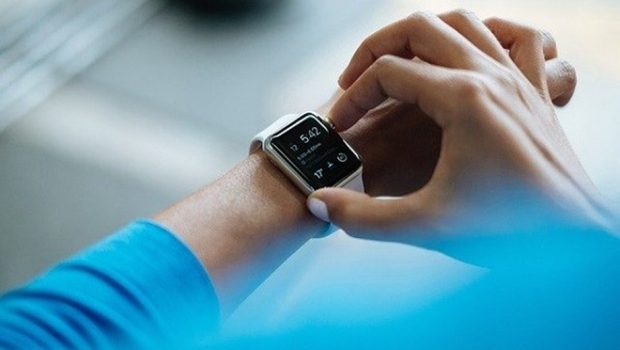How Technology Can Make or Break a Personal Injury Lawsuit
Technology helps or hurts civil cases like personal injury lawsuits and even criminal cases like robbery or vehicular manslaughter. Today's technical advancements enable us to analyze what happened during an accident, show the evidence that proves liability, record witness statements, and take photos of the accident scene.
A virtual army of people snapping photos with their smartphones and posting them on social media ensures that most accidents now have tech witnesses that confirm the facts of a case.
During a personal injury lawsuit, the injured person bears the burden of proving their case. Therefore, providing reliable and compelling evidence is critical to winning a favorable judgment or pressuring the other side to settle your case.
Technology can help build a rock-solid lawsuit, but it could equally destroy your chances of getting compensation.
Technology Commonly Used to Gather Evidence
Many types of technology and devices are used to record, confirm, or suggest a likely scenario in a motor vehicle crash, a slip and fall accident, a premises liability case, other personal injury lawsuits, even workplace injuries. Some of the most commonly used technologies used in lawsuits include:
- Dash Cams. They can confirm your version of events or prove without any doubt that you are mistaken. These car cameras are engineered to capture the details of any forward-facing collision.
- GPS Systems. GPS technology can confirm your location and relative speed. In addition, GPS receivers contain records of location and time that courts accept as readily as DNA evidence.
- Mobile Phones. Smartphones take pictures, record relevant data, and can even chronicle a person's driving route. Phones can certainly help in contacting rescue workers and police. In addition, phones can record the time of various actions, and witnesses often provide part of the phone-related evidence used to win a case.
- Wearable Technologies. Smartwatches, fitness trackers, and other wearable technology can gather evidence of your injuries and collect precious health data before and after the accident. The data in a wearable can prove causation.
- Automobile Technologies. Automotive tech can demonstrate clear evidence of distracted driving, a driver's failure to respond to warning signals, and proof that the driver was texting or talking on the phone without using hands-free technology.
The Power of Technology in Modern-Day Lawsuits
Today's wearable tech offers state-of-the-art software, solid-state sensors, and telecommunication capabilities far beyond the abilities of most mobile phones. Wearable gadgets come with many benefits for health, fitness, diagnosis, and medical treatments. They can prove invaluable to proving your injury case in court.
Wearable technology is used in court increasingly often to reconstruct what happened. The tech can easily confirm the timeline of various events, monitor injured people's health before and after the accident, and even serve as the final bit of proof in a wrongful death case.
Wearables can confirm your version of the story by reconstructing the moments just before the accident and confirming that you were in top shape before sustaining an injury if an insurer dares to claim otherwise.
According to https://www.pintas.com/, the public and judges are becoming increasingly tech-savvy, while the administration is still trying to figure out how to interpret privacy laws when accessing private data for federal authorities. Therefore, more and more cases rely on proof collected with the help of everyday devices. It is plausible to have our physical and even voice tracking apps discoverable. Can we subpoena Siri or Alexa's records to make or break a plaintiff's case? Time will tell. For now, you can use your wearables to build a case for yourself or fight a questionable claim against you.
Today, technology plays a crucial part in lawsuits. After all, it is hard to dispute the truth shown by footage of a surveillance camera or the one spoken during a recorded conversation. But it will take some time until a judge will hear a plaintiff's Echo requests or ask for Google's GPS data, although that future is around the corner, according to some legal specialists.
Technology Prevents People from Lying
If you have suffered injuries in an accident, you should contact a personal injury attorney in your area. Look for a lawyer that knows how to use and retrieve key data from smart tech devices like fitness trackers and smartwatches if you had any wearable on you at the time of the crash. If nobody tampers with technology, your devices will speak the truth on your behalf.
However, if the thought of fraud goes through your mind, you'd better let that thought pass. You cannot claim you suffered severe injuries after a car crash if your smartwatch shows you went trekking the next day. It is hard to claim you slipped and fell in the mall if your GPS shows you were in the mountains fishing at the same time. If they subpoena your WhatsApp records, you cannot claim you never had prior contact with someone.
Overall, gadgets and tech devices can provide data on peoples' movements, location, contacts, etc. Before you make a claim or fight against one, ensure that whatever technology shows will favor your case, not damage it.
Author Bio: Kyle Hambright is a passionate writer proudly representing pintas.com. He has focused his legal career on personal injury cases, and throughout his practice, Kyle has helped people from all walks of life. This determination transpires in his writings as well. His articles translate the complex web of legal jargon into accessible text. Readers not only gain a firm grasp on theory, but they also learn how to put it into practice.
(Devdiscourse's journalists were not involved in the production of this article. The facts and opinions appearing in the article do not reflect the views of Devdiscourse and Devdiscourse does not claim any responsibility for the same.)








Gloss